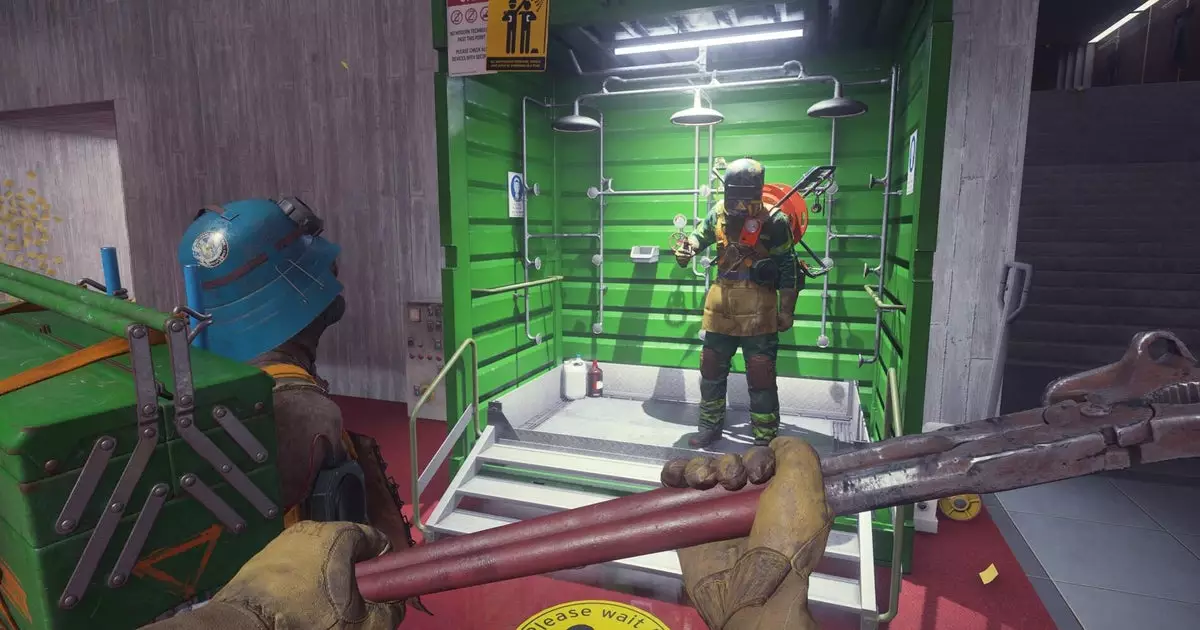Remedy Entertainment, the creative force behind the atmospheric narrative-driven game Alan Wake, has now taken a new direction. The announcement of FBC: Firebreak—a co-op shooter set in the same universe as their critically acclaimed game Control—represents a significant milestone in the studio’s evolution. This bold move toward a multiplayer experience holds promise but also carries inherent risks, requiring careful examination.
A Shift to Co-op Multiplayer
FBC: Firebreak marks Remedy’s foray into the multiplayer realm, a departure from their traditional narrative-driven experiences. This game revolves around teamwork, placing players in the roles of Federal Bureau of Control (FBC) agents tasked with confronting otherworldly threats. By framing the gameplay around a three-person co-op model, Remedy aims to nurture camaraderie among players while they navigate the eerie and surreal landscapes characteristic of the Control universe.
The implications of this shift to multiplayer are profound. It challenges the studio to maintain their signature atmosphere and storytelling while employing a play style that prioritizes quick engagement and collaboration over a linear narrative. This juxtaposition raises questions about how Remedy will blend their deep lore and narrative elements with the demands of multiplayer gameplay, which often necessitates fast-paced action and simplified mechanics.
The use of unique abilities in Firebreak, reminiscent of Overwatch’s “ultimates,” adds a layer of strategy that could enhance the gaming experience. The concept of “Altered World objects” introduces creative and chaotic gameplay opportunities—players must use these abilities strategically while facing unpredictable consequences, as demonstrated by the metaphor of the “jaguar in a box.” This means every encounter could yield unexpected outcomes, maintaining a fragile balance between chaos and control.
However, while such design choices can heighten the player experience, they also present challenges. The need for immediate accessibility and intuitive gameplay is essential, particularly as Remedy endeavors to establish a gaming environment conducive for casual players. Developers have expressed their commitment to avoiding the pitfalls of a game-as-a-service model, instead aiming for a relaxing yet engaging experience. The developers’ intent to focus on fun rather than grinding for loot is a refreshing departure from contemporary trends in the gaming industry that often prioritize engagement metrics over player enjoyment.
Although Firebreak will pivot toward multiplayer gameplay, Remedy aims to retain the intriguing narratives and atmospheres seen in their previous titles. Set in the aftermath of Control, players are promised deeper insights into the FBC and its convoluted lore. Game director Mike Kayatta has emphasized the significance of ensuring that this multiplayer endeavor is not merely a distraction but contributes meaningfully to the overarching Remedy universe. This connection with the lore serves to enrich the player experience and maintain continuity for devoted fans.
Nonetheless, the team faces a delicate balancing act. The existing narrative style, which has historically played out in single-player formats, may not translate seamlessly into a multiplayer context. Striking the right tone and ensuring that lore and exploration fit within the framework of cooperative gameplay is essential for Firebreak’s success.
Anticipation and Skepticism
As excitement builds around FBC: Firebreak, skepticism emerges about the potential pitfalls of transitioning to multiplayer. Remedy’s previous successes were predicated on deep, immersive storytelling, and the challenge is retaining these qualities in a format driven by cooperative gameplay. The need to captivate players beyond the immediate thrill of multiplayer confrontations remains paramount.
Moreover, the gaming community is ever-watchful for studios falling into the trap of becoming “content factories.” As developers strive to refresh and expand their games post-launch, it’s crucial they prioritize player experience over monetization strategies or endless content churn.
FBC: Firebreak is poised to mark a significant chapter in Remedy’s narrative—one that could redefine their legacy while broadening their player base. However, this venture into multiplayer territory carries the weight of expectation, requiring innovation and a steadfast commitment to quality. How Remedy navigates these challenges will determine if Firebreak can establish itself as a fitting addition to the celebrated Remedy Connected Universe.


Leave a Reply